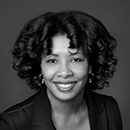One of the main objectives of the Private Bank is to build holistic relationships with our clients. We do that by helping them to identify their desires for themselves and loved ones, while also helping to recognize and avoid risks. We try to illuminate the path to a client’s goals and help them implement decisions to be made along that path. Devising that path is not a one-time discussion, but a process that continues throughout the course of our interactions. Although these discussions can be emotional, especially when talking about a family’s dynamics, on the whole most clients implement what planning needs to be done, even after a bit of procrastination.
Every so often we encounter a client who chooses to go down the wrong path or worse yet, chooses to do nothing. The term for that behavior is “dark pathing.” When it is clear what a client needs to do to achieve their goals or make a plan that reflects who they are, but they choose not to do so, it can be painful to watch. Instead we must try to help a grieving spouse or bewildered or angry children sort through the labyrinth of their spouse or parent’s affairs, find liquidity to pay large tax bills in a short period of time, and deal with conflicts of interest such as children from a first relationship and a second spouse. Sometimes there can be post-mortem decisions that may alleviate a lack of planning, but without comprehensive planning beforehand, most remaining choices after death are limit in scope and effectiveness.
An example of dark pathing is reflected in recent news articles about the choices that Philip Seymour Hoffman made in his estate plan. While he was alive, Philip Seymour Hoffman contributed his time and name to supporting many charitable organizations. However, based upon news reports, philanthropy was not reflected in his will. He left his entire estate to his long-time girlfriend. It’s commendable to leave your assets to people you loved, but it is also important to have your plan reflect who you are. If your estate exceeds the exemption amount, you have three basic ways to transition it – either you can spend it, let the IRS take 40 percent of it, or leave it to charity. If charitable endeavors were important to you while you were alive, why ignore them at death? Leaving assets to charity will help to lower the potential estate taxes due, while also creating a baseline for your children and grandchildren of values that are important to you. You can encourage those philanthropic values in your heirs by appointing them to run a charity that you set up at your death, such as a private foundation.
Other reports stated that Mr. Hoffman refused to set up a trust for his children because of his fear of them becoming “trust fund” kids. While it is true an excessive amount of inherited wealth can derail an heir’s ambitions; a trust is just a vehicle. The “trust fund” kid syndrome usually occurs from lack of preparation of the heir – teaching them financial responsibility, preparing them for a large amount of wealth, conveying values and what you expect them to do with the wealth. A trust can establish parameters using distribution to encourage behaviors, such as for graduating school, or salary matching of one dollar for every dollar earned to encourage gainful employment. A trust can have limits, such as only to pay for educational or medical costs. Alternatively, it can be an independent lender providing a low interest loan to start up a new business or purchase a new home. Having a structure within the trust and preparing your heirs beforehand prevents the situation which Philip Seymour Hoffman dreaded – of his children doing nothing but relying on trust payouts. His inability to trust and listen to his advisors, caused him to pursue the darker path in planning from which it seems his estate will pay a hefty cost in estate taxes as a result.
Your wealth plan should reflect your goals for your future and your family’s future. If an asset, a person, or a value is important to you – it should be reflected in your wealth plan. If there is inherent conflict in the relationships of your loved ones, you should anticipate that and plan to alleviate it. Your wealth plan is the culmination of all you’ve worked for all your life, all the people you cared about and provided for, and all the things in the world that are important to you. When your beneficiaries read it, they should know exactly the person you are and what you want them to do with what you have left behind. By choosing to ignore advisors, by failing to complete a plan or creating an inefficient plan, you are leaving your family and your community in the dark.













































